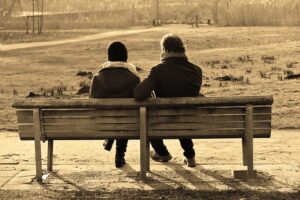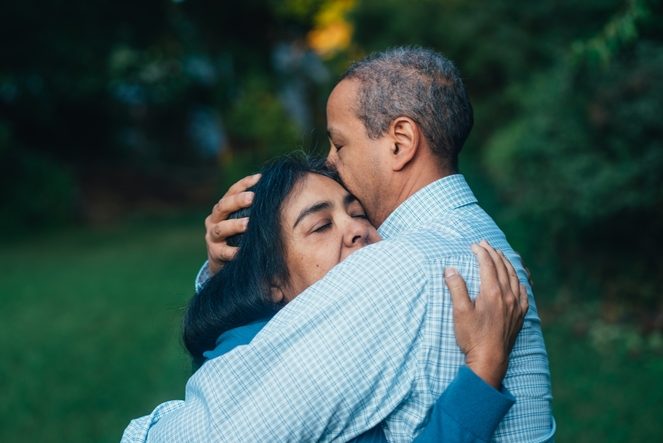“Someone I loved once gave me a box full of darkness. It took me years to realize that this too, was a gift.” – Mary Oliver
My darkness comes in the form of bipolar disorder. I was eighteen when I was officially diagnosed, and suddenly the past six years of my life started to make complete sense. It was a relief to know that my fluctuation of emotions was somewhat justified. Unfortunately, we still live in a society where having a ‘mental illness’ is seen as an affliction without fully understanding its true nature. In studies of transpersonal psychology, which often draws from the understanding of ancient cultures, what we view as ‘illness’ is actually a gift, as these individuals possess heightened senses and abilities. Carl Jung, a well-known transpersonal psychologist draws on this alternative view in a statement where he characterized schizophrenia and psychosis as a form of healing.
“When conscious life is characterised by one-sidedness and false attitudes, primordial healing images are activated – one might say instinctively – and come to light in the dreams of individuals and the visions of artists… Schizophrenia is a condition in which the dream takes the place of reality.”
– Carl Jung
However, in our current society, mental illness is immediately attributed as something that is negative, deeming these individuals as ‘outcasts’ or ‘incompetent’. In effect, the individual loses any form of self-worth, which creates fear of opening up and showing their true self.
According to a survey conducted by the National Bureau of Statistics of Australia, results show mental illness as the third leading cause of disability burden, with around 2,400 Australians dying from suicide every year. Many experience depression, bipolar or other forms of similar afflictions. The highest percentage of people that were unemployed had some form of mental disorder, with a prevalence rate of 26% for unemployed men and 34% for unemployed women.
Bipolar disorder is a mental illness marked by extreme shifts in mood that range from mania to depression. These moodswings can last for days, weeks, or sometimes even months at a time. When I am in an elevated state, my moods oscillate from one extreme to the next. There are weeks where I would spend days in bed, staring at the wall and wishing I would disappear. I’d lose my appetite and my thoughts would race furiously and irrationally. I’d react to anyone around me and say spiteful things just because I couldn’t deal with myself. On other days, everything would be so blissful and perfect that it felt like I was floating on a cloud.
Opening up to a new friend or partner about my darkness scared the absolute shit out of me, because I never wanted to be seen as weak or inadequate.
All these emotions played a direct effect on my relationships, whether it was the relationship to myself, to family and friends, or romantic relationships. I had to learn how to fully express my vulnerability in all its rawness in order to understand the person that I am. I had to surrender to whatever was coming up for me, let go of the egoic mind and trust that everything would always be okay. I had to use vulnerability as a tool to grow, to move forward and strengthen myself as a person.
The ability to become completely vulnerable is one of the biggest hurdles of life. When you are being vulnerable, you are exposing the deepest depths of your being: your fears; your insecurities; and the walls that you’ve built around yourself all begin to come down. You are putting complete trust in another person to accept your imperfections and flaws without carrying any judgment. By being vulnerable, you are putting out all your cards on the table and sometimes, the thought of that is terrifying.
But when the darkness comes through your shaking body, this is one of the most important roads that will lead you to the light. So, I decided to speak to some people about their experiences with mental health and vulnerability. These people all have experiences with mental illness, facing their fears and dealing with being vulnerable in the face of struggle.

What does vulnerability mean to you?
Zane, USA, 25: Vulnerability is strength. Vulnerability is the greatest step towards true growth. Vulnerability allows you to see that you are responsible for the story you tell about yourself and once you process and let go of your past pain, you can define yourself any way you want. It has also made me more aware and compassionate of the suffering of others.
India, Australia, 24: Depression and anxiety begins as something you fight and wish away, until you realize you have to allow it to be part of you, to walk beside you. That’s when you can give it names like Tod, that way you can see it as a friend. Giving darkness light allows transformation. Vulnerability is emotional freedom – shared with oneself without judgment and other people. Having trust in oneself that it is okay to ‘feel’ to ‘be’ human.
Lindsay, Australia, 23: Vulnerability for me is all about allowing myself to be honest, authentic and realistic about where I’m at as a person and understanding that I have many flaws that need consistent attention. My obsessive thoughts usually focus on trying to avoid both real (logical) and imagined (illogical) vulnerabilities to myself and others around me and so it has been a challenge to accept that those vulnerabilities are just part of life.
How does mental illness affect your relationships?
Zane: Depression has forced me to open myself up in my relationships. I am lucky to have people in my life that are willing to hold a space and listen to me with minimal judgment. When depression hits, I have learned it is better to take off any mask that hides what I am feeling, because of this; those close to me can recognize my suffering and help me process it.
India: I think that deep in my subconscious, what I call “depression and anxiety” has blocked my ability to receive. Whenever a time arises for emotional sharing, a barrier of un-trust and deep-rooted self-hatred blocks the vital pathway that creates and strengthens relationships. It’s exhausting to be involved in any relationship, let alone romantic relationships. As much as I desire to be adored, to feel lightness and ease in romantic relationships, I feel resistance to allow bliss to bloom between the two of us. It feels like a third ‘noise’ that continuously causes me to second-guess another’s love, taking me to a mental place feels hostile.
Lindsay: Trying to communicate to a significant other how I am feeling when the trigger or source of that anxiety is totally illogical, weird or even disturbing has been very difficult. In previous relationships, where my partners had not experienced anxiety themselves or dealt personally with someone with a mental illness, a fear of lack of acceptance has often led to me emotionally withdraw and revert to a familiar state of emotional camouflage.
Concealing my emotional state has become reflexive in a sense because of this, and breaking out of that reflex has been challenging for both of us in the relationship. Though mental illness is the source of continual challenges in my current relationship, the mutual understanding of each other’s experience has actually been an alleviative and therapeutic part of the relationship.
What are some ways that you have learned to be open with your emotions whilst in a relationship?
Zane: Being honest. Recognizing what I feel and not denying it. By taking off the daily mask we wear, the mask intended to hide our true emotions and true personality from the world. This means revealing all to someone who gives me a safe and secure space to “be ourselves.” Doing so has allowed me to process my past pain and understand my depressive periods.
Having someone who is willing to listen to me share what I am feeling is a true remedy and a great gift. I think that’s why it is important to become vulnerable with someone you trust, someone who will give you that safe and secure space that is free of judgment. Someone who is calm and receptive to what you share without any intention of offering “advice” or feedback.
India: Seeing my fears and desires in how my partner reacts highlight what I need to address – there is no escaping. Being able to confront myself through the eyes of a lover takes courage, but by doing so I am able to transcend to a better version of myself, gain insight, and hopefully teach them how to be okay with it all. I have learned that being open gives me the ability to keep persisting, keep connecting and allowing myself to feel. By not resisting, I now understand that there is always someone out there that won’t mind holding your hand as I annihilate the weeds.
Lindsay: Honesty, honesty, honesty. Though it can abrasive at times, I’ve learnt that in the end it is much less painful to be unwaveringly honest than to try and maintain an emotional front for the sake of tranquillity. Establishing an environment in which both people feel free and comfortable to be wholly honest about their emotional state has become my primary focus.
Of course, this is a continuous and unrelenting challenge given the impulse to dishonestly obscure my emotional state is always there. I have to remind myself that “a lie is sweet in the beginning and bitter in the end, and truth is bitter in the beginning, and sweet in the end” – DJ Koze.

